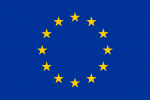Citizen science involves the public in scientific research and thus has the potential to bring together science, policymakers, and society as a whole in an impactful way. Through citizen science, all people can participate in many stages of the scientific process, from the design of the research question, to data collection and volunteer mapping, data interpretation and analysis, and to publication and dissemination of results.
To reduce CO2 emissions on time, we need massive deployment of wind and solar photovoltaics. Here public acceptance can be an issue and, with this project, we want to prove strategies that enable the participation of citizens in the energy transition can bring many benefits. AURORA aims to engage citizens with energy sustainable behaviours, and empower civil society to adopt a leading role in the energy transition.
The project does not include funding to pay for the 1MW installation (200kW in each demonstrator). Those installations will be paid for via crowd-sourcing from the participants in the demonstrator site. The project aims at innovative citizen engagement through crowdfunding solar installations, citizen carbon footprint monitoring through an App, hands-on workshops, citizen researcher meetings, co-development of civic local roadmaps, and other activities. The project funding is devoted to all the research around that experience and includes many other different aspects.
The project team is currently working to develop a carbon footprint calculating tool, which will then become the backbone of the App. As a citizen science project, we wish to develop the App together with citizen scientists, through the format of Innovation Café to be held at the various demonstrators. The App will be released in early 2023.
The knowledge gap that we want to address with this project is how to make these energy communities become a reality and make them sustainable in time, which includes a sustainable legal scheme, economic scheme, etc. No one solution fits all but we hope the demonstrators in AURORA will inspire others to adopt similar approaches. We will also investigate how to incentivize the participation of citizens and changes in behaviour that reduce energy consumption. Last not but not least, with the knowledge gained from the project, we will better understand how the energy transition scenarios are impacted by social perspectives.
There are five demostes in AURORA: Aarhus University in Denmark, Évora University in Portugal, Forest of Dean District Council in the United Kingdom, the University of Ljubljana in Slovenia, and the Technical University of Madrid in Spain.
Particularly young people and marginalised groups will be addressed in the project. The idea behind the project is to attract the interest of young people, who are more open to experimenting with apps and definitively committed to initiatives to fight against climate change, and who in the short term will become independent economically, and will make informed energy decisions because of their experience in AURORA project.
You find more detailed information about each demosite in the Demosites section. There you can also find contacts of the local energy communities.
Of course. There are multiple ways to be involved in the project, e.g., becoming an observer. If you would like to know more about it, drop an email to info@aurora-h2020.eu, and we would be glad to discuss how the energy communities can be replicated in your area.
In Europe you can gain an overview on citizen science by contacting the European Citizen Science Association (ECSA) who are based in Berlin Germany. Further information about citizen science projects can be found at the EU Citizen Science website. Globally you can learn about citizen science from the Citizen Science Global Partnership (CSGP) who are based in Vienna Austria.
Yes and increasingly UNEP are working with the global citizen science programme to develop best practice and share it on the world stage through platforms such as the World Environment Situation Room (WESR)
Let us know and we will add them to our FAQ.

| Cookie | Duração | Descrição |
|---|---|---|
| cookielawinfo-checkbox-advertisement | 1 year | Set by the GDPR Cookie Consent plugin, this cookie is used to record the user consent for the cookies in the "Advertisement" category . |
| cookielawinfo-checkbox-analytics | 1 year | Set by the GDPR Cookie Consent plugin, this cookie is used to record the user consent for the cookies in the "Analytics" category . |
| cookielawinfo-checkbox-functional | 1 year | The cookie is set by the GDPR Cookie Consent plugin to record the user consent for the cookies in the category "Functional". |
| cookielawinfo-checkbox-necessary | 1 year | Set by the GDPR Cookie Consent plugin, this cookie is used to record the user consent for the cookies in the "Necessary" category . |
| cookielawinfo-checkbox-others | 1 year | Set by the GDPR Cookie Consent plugin, this cookie is used to store the user consent for cookies in the category "Others". |
| cookielawinfo-checkbox-performance | 1 year | Set by the GDPR Cookie Consent plugin, this cookie is used to store the user consent for cookies in the category "Performance". |
| CookieLawInfoConsent | 1 year | Records the default button state of the corresponding category & the status of CCPA. It works only in coordination with the primary cookie. |
| elementor | never | This cookie is used by the website's WordPress theme. It allows the website owner to implement or change the website's content in real-time. |
| Cookie | Duração | Descrição |
|---|---|---|
| _ga | 2 years | The _ga cookie, installed by Google Analytics, calculates visitor, session and campaign data and also keeps track of site usage for the site's analytics report. The cookie stores information anonymously and assigns a randomly generated number to recognize unique visitors. |
| _ga_HZS3ZLRH8Q | 2 years | This cookie is installed by Google Analytics. |